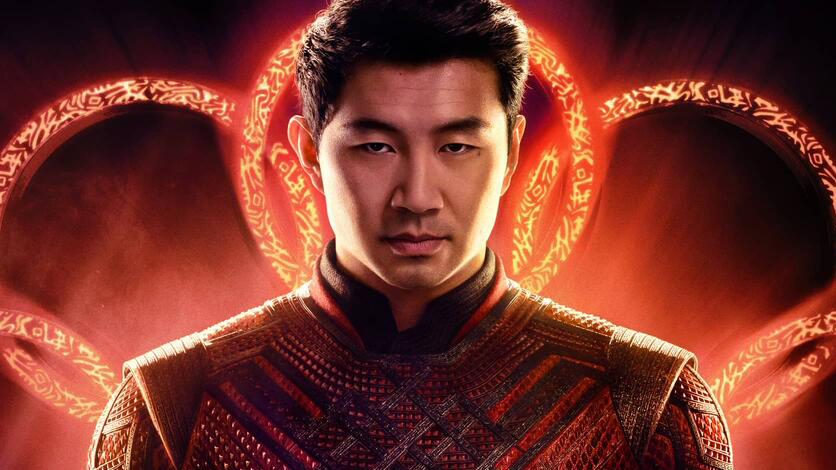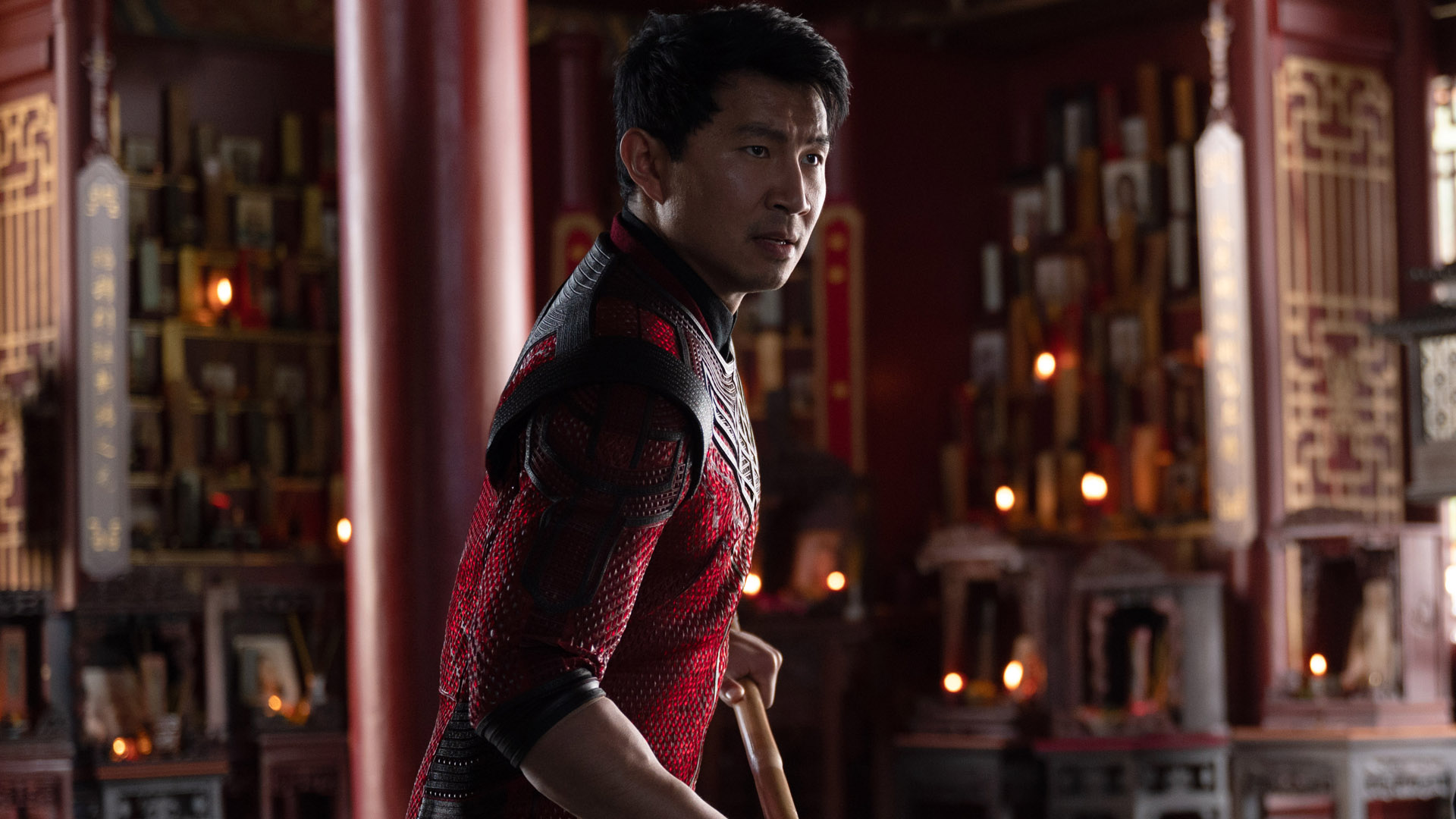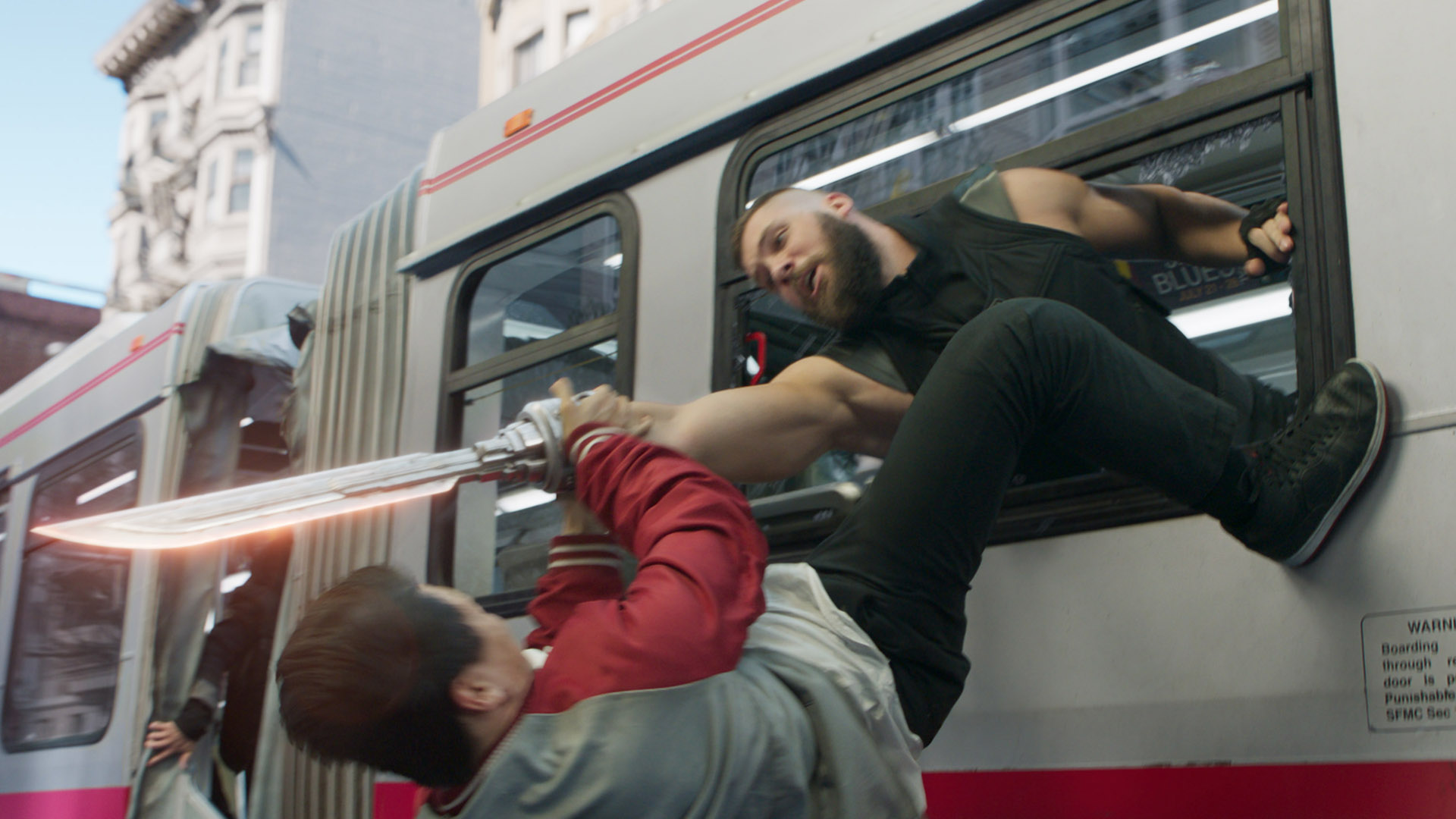Shang-Chi director on improving inclusivity in one of the best MCU movies to date

Shang-Chi feels like another positive step towards greater representation in the Marvel Cinematic Universe (MCU). Often criticized for its over-reliance on white, cisgender male superheroes, Marvel has finally started to diversify the lead roles in its recent movies, most notably with Black Panther and Black Widow.
It’s a welcome, if long overdue, move and one that Shang-Chi, Marvel’s latest superhero movie starring its first Asian superhero, looks to build on. With nearly 60% of the world’s population living in Asia, or being of Asian descent, it’s high time that an MCU film celebrated the continent’s wide-ranging cultures and societal values.
Set after Avengers: Endgame, the film opens with Shang-Chi (Simu Liu) masquerading as Shaun, a San Francisco native who works as a valet driver alongside best friend Katy (Awkwafina).
- Here's our spoiler-free review of Marvel's Shang-Chi movie
- Shang-Chi ending and post-credits scenes explained
- How to watch the Marvel movies in order
When assassins attack Shang-Chi and steal his mother’s pendant, he’s forced to head home and reunite with his estranged father Xu Wenwu (Tony Leung) and sister Xialing (Meng’er Zhang). Shang-Chi must also deal with the Ten Rings: a criminal organization led by Wenwu, who wields the all-powerful titular bracelets.
Ahead of Shang-Chi’s release, TechRadar sat down with director Destin Daniel Cretton to discuss the importance of making a superhero movie that authentically captures the Asian (and Asian American) experience. We also chatted about the film’s frenetic fight sequences and what the future holds for Shang-Chi in the MCU.
A heroic reinvention

Shang-Chi is a character whose comic history is synonymous with negative Asian stereotypes. The Marvel superhero made his print debut in 1973 but, in the near 50-year period since, Shang-Chi’s various comic series have come packaged with racially insensitive names and clichés.
Doing justice to Shang-Chi meant that Marvel needed to eliminate the negative stereotypes associated with the character. Renaming Shang-Chi’s father (Xu Wenwu) and the mystical dragon (the Great Protector), which inhabits the pocket dimension village known as Ta Lo, were well-received first steps, but more was needed.
Sign up for breaking news, reviews, opinion, top tech deals, and more.
So Shang-Chi’s origins were also updated for his live-action debut. With the film opening before he flees to the US as a teenager, audiences find Shang-Chi living a secret life as Shaun – a far cry from his comic counterpart who was born (and resided) in China until he was an adult.
Hiring an Asian American director, then, was vital to give this movie some creative credibility. After a lengthy worldwide search, Destin Daniel Cretton (Just Mercy, The Glass Castle) was tapped for the role. Initially hesitant to helm a superhero movie, Cretton says that Marvel’s desire to update Shang-Chi for the present day, coupled with authentically capturing the Asian experience, was key to him eventually signing on.
“I never had a superhero that I could dress up like on Halloween or someone who looked enough like me when I was a kid,” Cretton tells us. “They [Marvel] wanted to tell this story in the right way and avoid every Asian stereotype that’s been hovering around for a long time. To be able to do that for another generation of young kids was really exciting to me.”
Like Black Panther, whose sizable cast was made up of numerous Black actors, Shang-Chi’s line-up predominantly comprises many well-known Asian actors as well as newcomers.
Established stars in Michelle Yeoh (Crouching Tiger, Hidden Dragon), Tony Leung (In the Mood for Love), Awkwafina (The Farewell, Crazy Rich Asians), Fala Chen (The Undoing) and Benedict Wong (Doctor Strange) all feature. Meanwhile, rising star Simu Liu (Bad Blood) and Meng’er Zhang, in her first-ever film role, play Shang-Chi and his sister Xialing respectively.
With 13 members of its cast of Asian descent, Cretton believes that Shang-Chi will be as culturally significant for Asian populations as Black Panther was for Black communities.
“Growing up, my friends were mainly Filipino, Chinese, Japanese, Okinawan,” he says. “When I went to mainland USA for the first time, I felt out of place. Someone came up to me in a bar and called me Bruce Lee and I realized ‘Oh yeah, I’m different here’. Now, I can’t wait for people to meet our characters. They’re all of Asian descent and from similar ethnic backgrounds, but there’s such a large array of personalities and I’m excited for both Asian and non-Asian people to notice that we’re just like everyone else.”
Bruising battles and future films

While Marvel wanted to avoid insensitive stereotypes in Shang-Chi, the studio was keen to retain one key aspect from the character’s comic series: martial arts.
Known as the Master of Kung Fu, Shang-Chi is an expert in numerous fighting styles. So honoring each form of combat, as well as Kung Fu cinema, was as important to the movie’s chief creative team as other aspects of its production.
The hiring of the late Bradley James Allan (Rush Hour 2, Shanghai Noon) as a second unit director and supervising stunt coordinator was key to the film’s martial arts authenticity. Expert choreographers, movement artists and parkour masters were also drafted in from Mongolia, Australia and Canada to craft Shang-Chi’s battle sequences.
With fighting styles ranging from Hong Quan to meditative Taiji, and Krav Maga to Wushu, Shang-Chi’s close-quarters combat is physically and visually impressive.
Cretton, though, singles out the film’s bus battle, where Shang-Chi is attacked by the Ten Rings for the first time, as the most challenging to film. With actors brawling in the bus’ enclosed environment – on both a built set and a real-life moving vehicle – it proved to be a testing sequence to shoot.
“We shot in an accordion bus that was 20 feet up in the air,” Cretton explains. “And that was in a gimbal that could move, twist and go through a 45-degree angle. All of those turns were timed to the practical shots that we got in San Francisco.
"We had a real bus going down the hill actually crashing into cars that, along with Brad and his team’s choreography, brought added energy and humor to that fight. There was lots of coordination between departments to make sure that everything made sense and was cohesive, and it turned out to be my favorite experience in the movie.”
Shang-Chi should feature prominently in the MCU’s future. The film’s ending and post-credits scenes tease the character’s involvement in Phase 4 and beyond but, right now, Cretton is unsure where his story goes from here.
“Those ideas [for sequels or cameo appearances] are ongoing,” he teases. “And they have been since production began. Which direction will Marvel go in the future? I’m not sure, but I can assure you that it’s very exciting.”
Regardless of where Shang-Chi appears next, the character’s live-action debut is another purposeful step forward for the MCU.
Where Black Panther celebrated Black communities, and Captain Marvel and Black Widow led the way in gender equality (albeit for a superhero movie series), Shang-Chi belatedly brings an authentic focus on Asia that had been missing from Marvel’s multi-billion dollar empire.
Marvel wanted to tell this story in the right way
Shang-Chi director Destin Daniel Cretton
As part of that quartet, Shang-Chi is helping to usher in more meaningful representation in the MCU.
Marvel’s Eternals will introduce the first openly gay and deaf superheroes to the world’s biggest cinematic universe. Ms Marvel will introduce a Muslim hero in Kamala Khan on Disney Plus, while Marvel’s She-Hulk TV show will continue to build out the MCU’s female hero line-up. Blade and Ironheart, too, will bring more Black superpowered beings to audiences worldwide.
After numerous movies and TV shows centered on straight, white male superhumans, each new arrival is a step in the right direction. Shang-Chi is another example that shows Marvel wants to increase representation in the MCU; it’s just a pity that it took until 2018’s Black Panther for the studio to do so.
Still, Shang-Chi is a historical moment. The character’s first MCU appearance has been a long time coming and, providing audiences take to Marvel’s latest live-action superhero, it won’t be his last.
Shang-Chi and the Legend of the Ten Rings is in theaters now.
- Marvel's Eternals: release date, trailer, cast, plot and more
As TechRadar's senior entertainment reporter, Tom covers all of the latest movies, TV shows, and streaming service news that you need to know about. You'll regularly find him writing about the Marvel Cinematic Universe, Star Wars, Netflix, Prime Video, Disney Plus, and many other topics of interest.
An NCTJ-accredited journalist, Tom also writes reviews, analytical articles, opinion pieces, and interview-led features on the biggest franchises, actors, directors and other industry leaders. You may see his quotes pop up in the odd official Marvel Studios video, too, such as this Moon Knight TV spot.
Away from work, Tom can be found checking out the latest video games, immersing himself in his favorite sporting pastime of football, reading the many unread books on his shelf, staying fit at the gym, and petting every dog he comes across.
Got a scoop, interesting story, or an intriguing angle on the latest news in entertainment? Feel free to drop him a line.